Senegal: The sweet scent of clementines
From the cries of the street vendors, stinky feet and a temperature of 35 degrees. Travelling by bus in Senegal is a crazy adventure that welds together, in the truest sense.
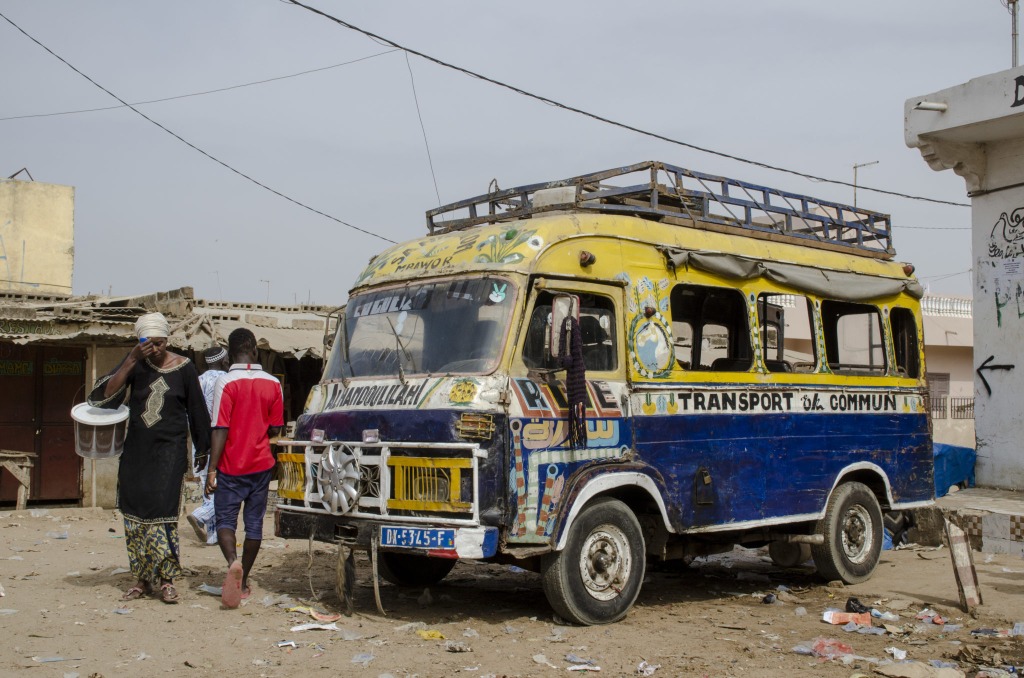
Ibrahim’s hair is standing on end – but not out of fear. That said, the sight of the rickety, barely-roadworthy old bus would be enough to strike concern into many hearts. The sheen has worn off, in the truest possible sense. Almost every one of the coach’s constituent parts appears either broken, bent or otherwise tattered. Ibrahim, however, at twenty five years of age is a true Senegalese and therefore well acquainted with the vagaries of its transportation network. His hair, twisted in to tufts around 4cm long, jostles gently in the wind as he clambers aboard the bus to Mbour Petite Cote. The slogan on his green T-shirt reads: “Shut up and Piss off”. In German. And on that note, the bus departs.
Bus driving in Senegal, or, whose bus is oldest?
The journey from the noisy centre of Dakar to the equally-rowdy Mbour Petite Côte, in the south of Senegal, can take anywhere between one and a half and five hours, depending on the traffic. More exact travel times are simply non-existent here. Planning is almost impossible. In Africa, one loses all sense of time anyway. The preceding journey, in a run-down old taxi to Dakar’s biggest bus station, was a gauntlet run in itself. Winding through densely-filled access roads, the taxi had jostled through the traffic and past streams of noisy cars to Pikine, one of four Départements in Dakar’s city centre.
The notion of multi-laned roads is more or less unheard-of here. Progress through traffic is generally achieved by other means. Such as honking. Or swearing. And then honking again. Taxi drivers also like to change directions. Right before left? No need! Here, everyone and anyone has right of way. When we finally arrive at the destination, namely at Dakar’s bus terminal, it resembles a weekly market rather than a major terminus, and the junction in front of it is reminiscent of a theatre set. People stand about, chatting, idly shooting the breeze. These debates are often punctuated with extravagant gesticulations, exhibiting a flair for drama that would impress any Italian.
It gradually becomes apparent: one of these restless men is wearing a hat. Or in this case, a rather worn cap. This, it transpires, marks him out as responsible for shepherding the arrivals from taxis toward the overland busses, including the one to Mbour.
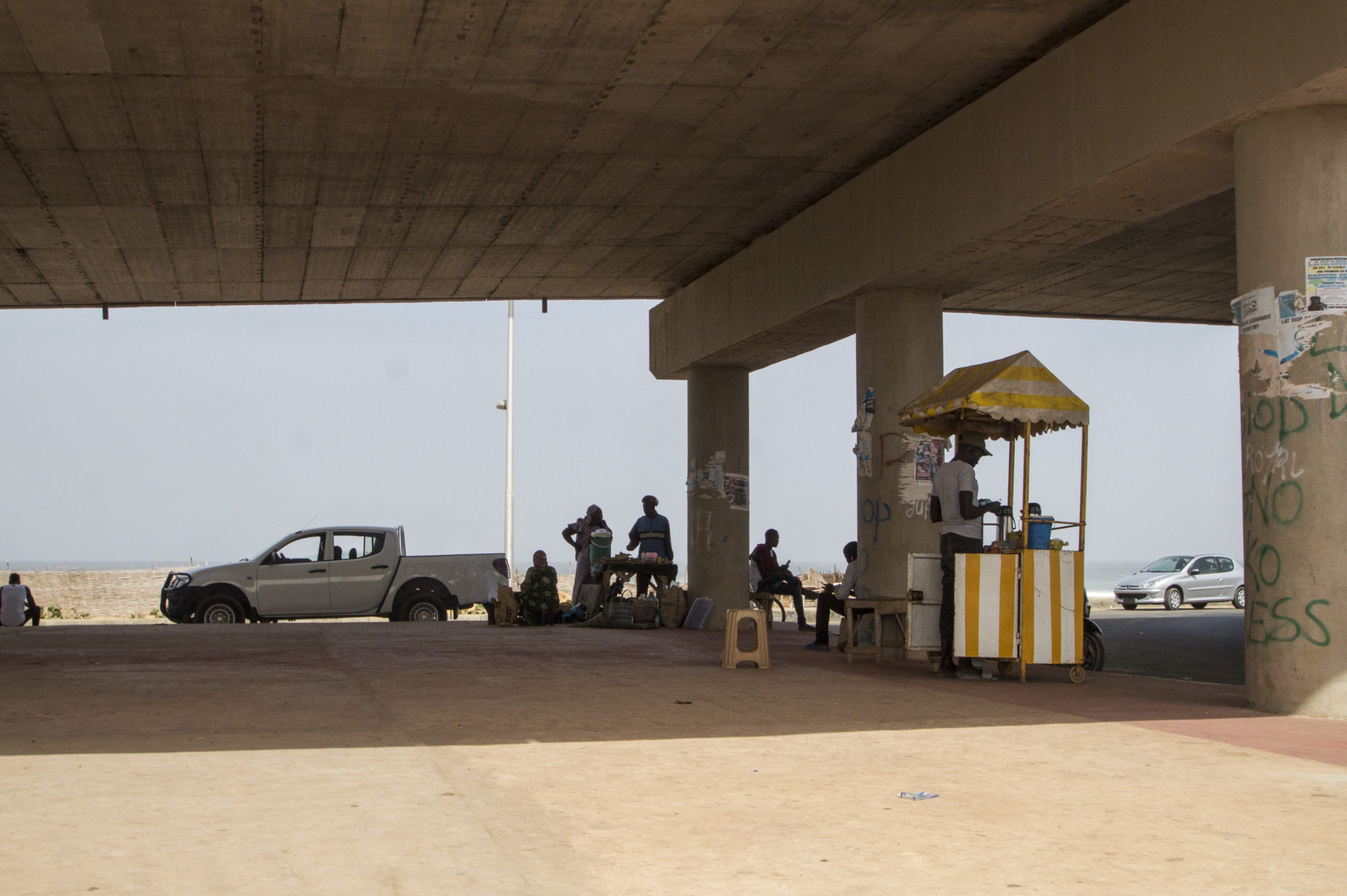
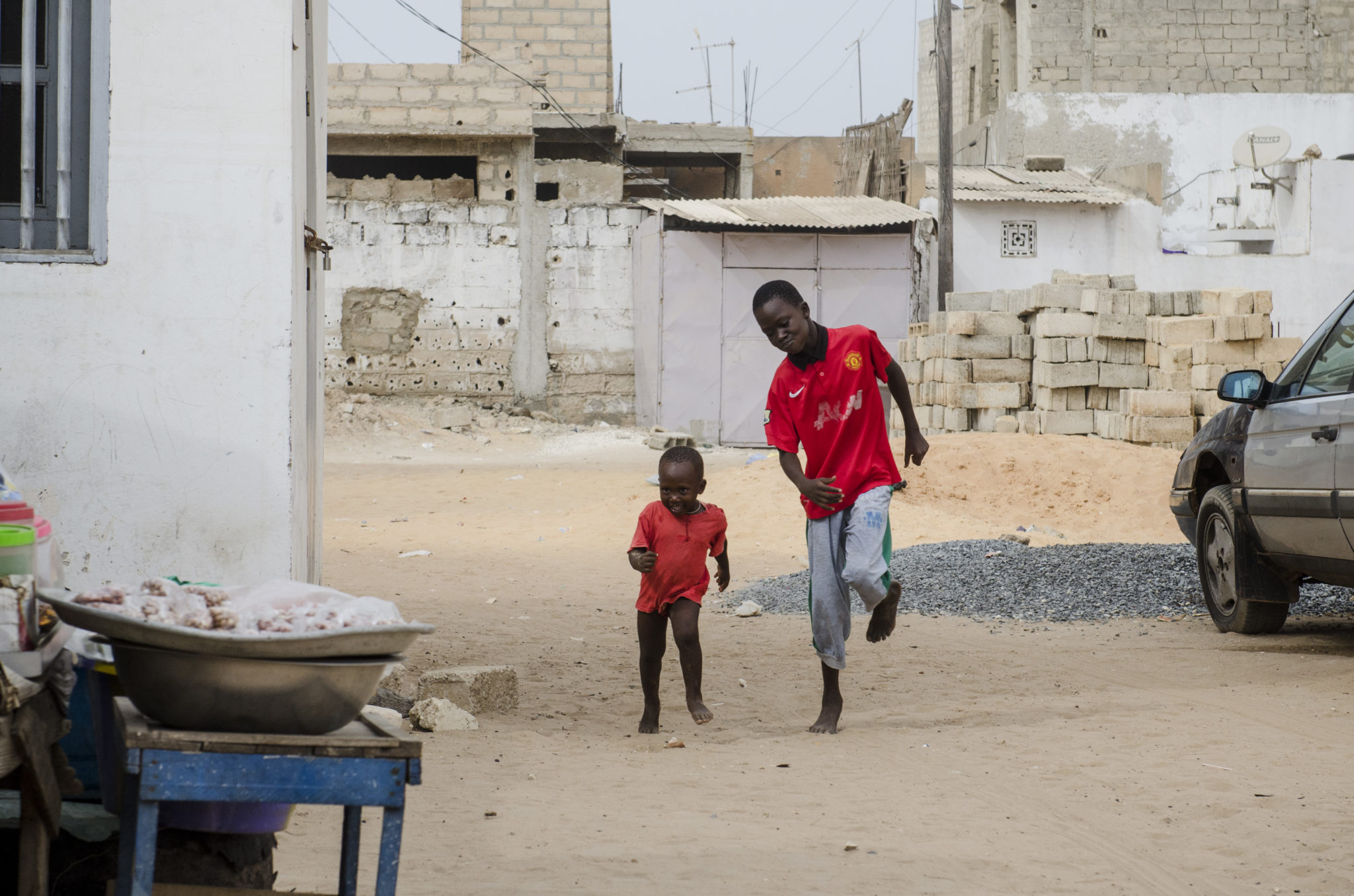
The bus to Mbour Petite Cote has seen better days. Some of the seats have been worn right through to the springs. The reclining function of some has ceased to work, leaving them at a permanent angle. Brittle foam emerges in patches between the cracked artificial leather, evocative of an abandoned 1960’s sofa. The bus slowly fills, while large bundles are raised onto the roof. Further folding seats are squeezed into the aisle. Now there really isn’t any more room. In Senegal, the bus only leaves when every last passenger is seated. Standing during transit is forbidden.
As is often the way, the back seats on the bus are occupied by the noisiest passengers. This is a recurrent phenomenon, one that transcends countries and cultures. The back row’s occupants are cool kids from Dakar. Almost a dozen youths, who seem to all know each other and have nicknames for everyone. They don’t talk in French, Senegal’s official language, but in Wolof – the native tongue of the Wolof people, which make up the country’s ethnic majority.
Outside, people keep banging on the hot metal of the bus, imploring the driver to let another passenger on board. Suddenly the noise grows louder. Someone is throwing stones at the bus and they have to be forcibly restrained, before they desist. If the bus is full, it’s full. The situation is resolved before a fist fight breaks out, but the boys in the back row have enjoyed the scene. There is a lot of laughter.
A bus as a marketplace: from Dakar to Mbour, Petite Côte, Senegal
It is just before four in the afternoon at Dakar’s main bus station. As the coach sets off, it seems to have morphed into a mobile marketplace. Various sellers have climbed aboard for the first part of the trip, hoping to sell some of their wares before disembarking at the next stop. There are freshly harvested clementines, packaged into groups of five, bottles of ice-cold water and tubes of toothpaste, paired with a toothbrush. There are no takers for the latter –admittedly a somewhat surprising offering – nor, for that matter, for the mandarins or even the chilled water. But everyone has a good look. As the bus meanders through Dakar’s chaotic outskirts, the tickets are sold. It costs 2000 West African CFA-Francs, approximately 3 Euros, to travel from Dakar to Mbour. For some Senegalese, it represents a fairly hefty sum.
Ibrahim gazes blankly out the window. Only occasionally does he make this long journey to visit his parents, who live in one of the small towns that trail along the Petite Côte like as many pearls on a string. His fellow travellers are a motley bunch. To his left, an elderly man like an African Papa Smurf sits beside the window, a bushy white beard contrasting starkly against the blackness of his skin.
When the boss speaks, silence descends
At the rear of the coach, in the row in front of the noisy youngsters, sits a solitary traveller, a middle aged woman in traditional dress. As is customary in Senegal, she wears a simple frock made of a shiny material that almost appears waterproof. It imparts a particular aura. She looks graceful sitting there, like a visitor from another time. Like Ibrahim, she listens to music on her Smartphone and shields her face with her hands from the prying eyes of the youths. Beside her, a young mother has made herself comfortable with her toddler. So far, so good. The little boy is fast asleep. A few men toy distractedly with their Misbaha, Islamic prayer beads. Some are fashioned from ivory, others are just glass. The boys at the back continue to snigger.
After the first stop, the volume rises again. There is a battle of words. It seems that the maximum number of passengers has somehow been exceeded; there are two too many on board.
Straight away, the blame game begins, but the culprit isn’t identified easily. Instead, everyone gets involved, from the front rows to the back, including a businessmen, the elderly man, a debt collector and the young mother. Everyone has something to add and they are all speaking at once. Only Ibrahim watches quietly, with faint amusement. „Shuuut the fuck uuup“, sings out a semi-melodious voice from the back row. At the front, someone is tugging imploringly at the shirt of the cashier. A peaceful onward journey seems unthinkable. The same thought appears to descend on the driver, who suddenly stops the bus, right in the middle of the road, and bellows a stream of invective in Wollof through the coach. It appears to work. The boss has spoken. Two men stand up and move somewhat begrudgingly off the bus. Fears that the journey might be abandoned are assuaged. Peace returns to the bus. Just the boys at the back are unable to resist making fun of the situation. Their jokes even raise a smile from Ibrahim.
Then it’s quiet again. Ibrahim has long since replaced his headphones to his ears. Music is calming. Only occasionally do passing traders interrupt the reverie. „Clementines, clementines, clementines!“ echoes through the bus. That it makes little sense, for four girls to simultaneously attempt to sell the same fruits at once, appears to occur to none of them.
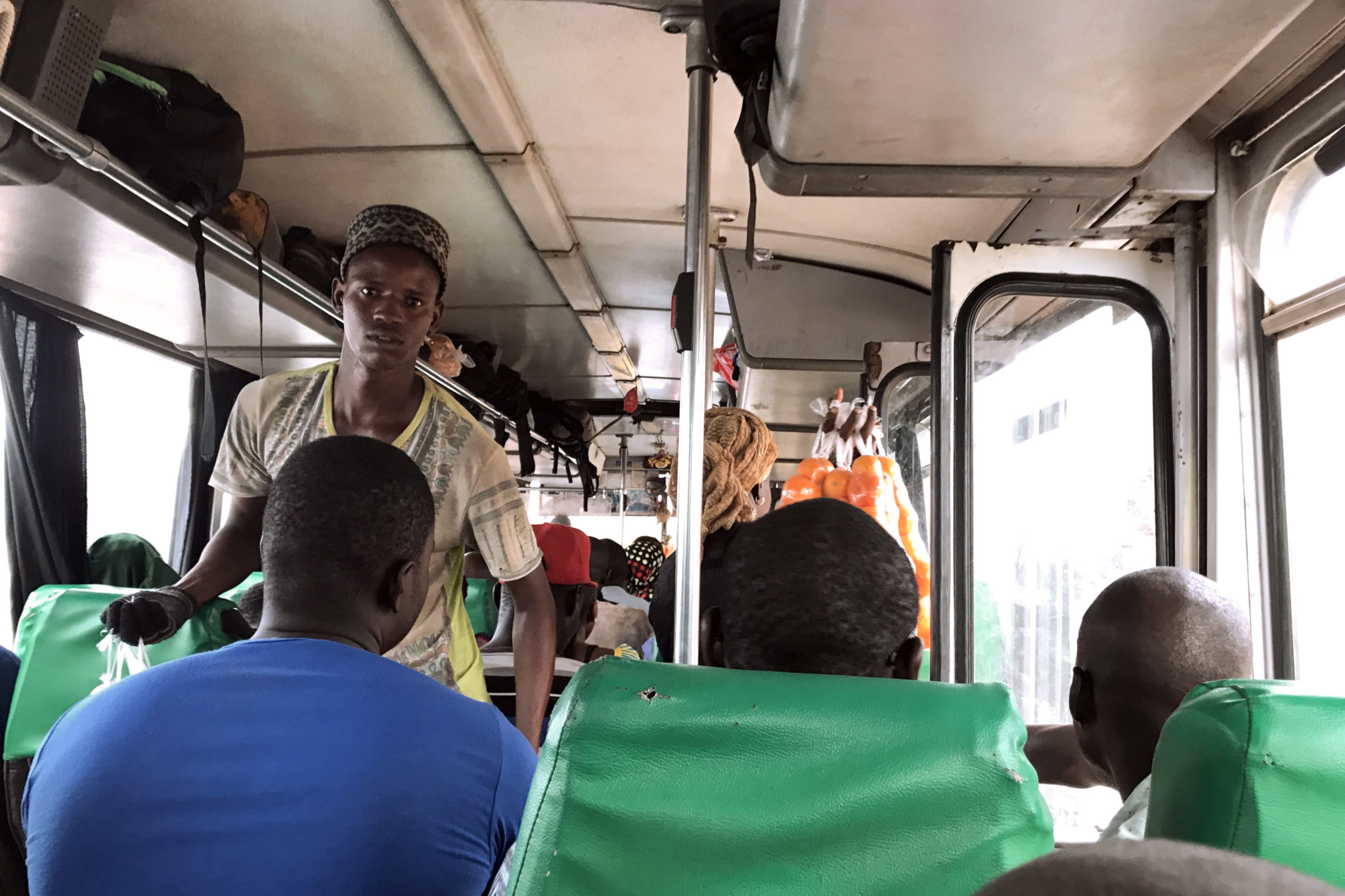
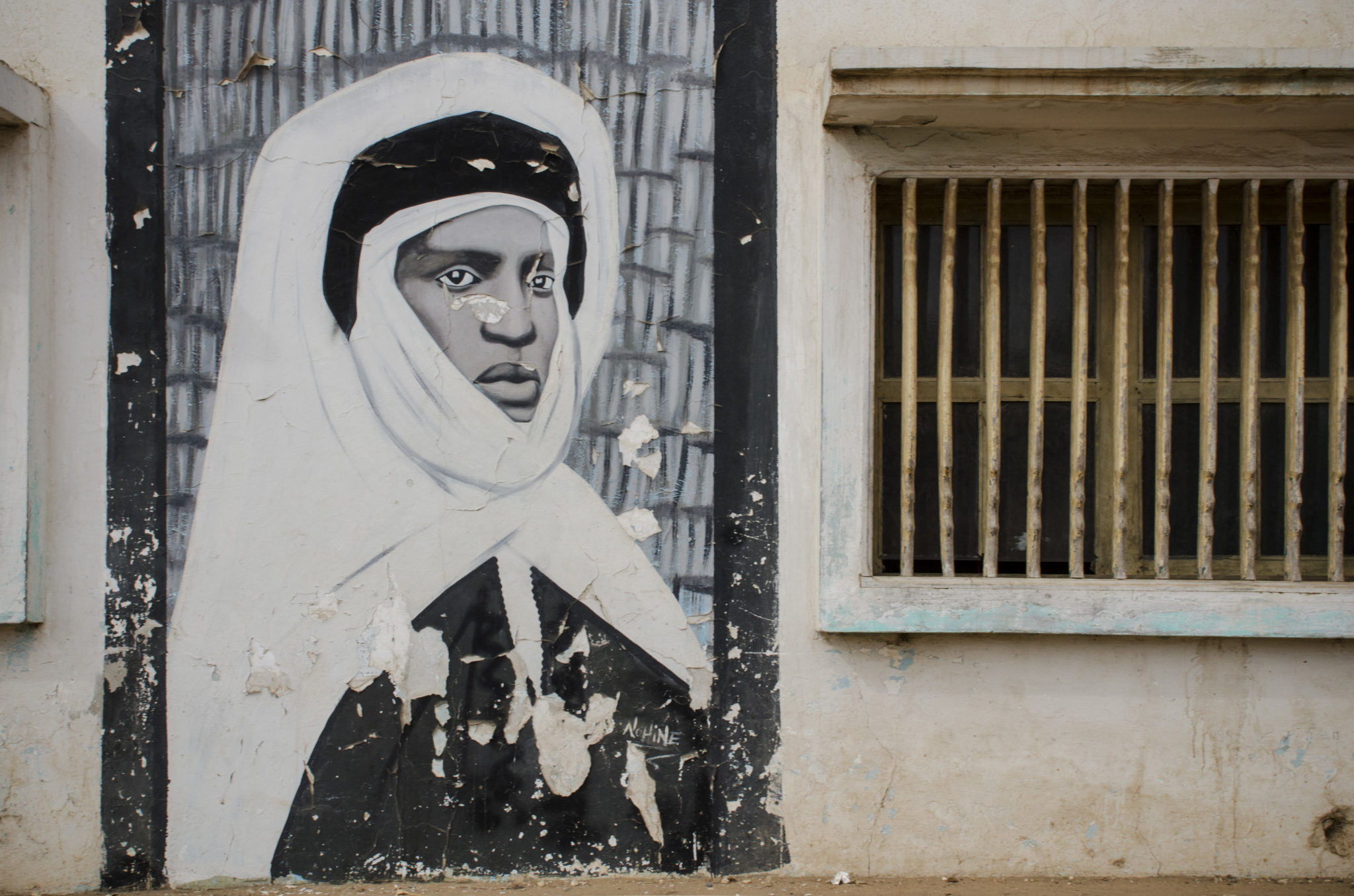
Outside it‘s 35 degrees in the shade, and inside, the air is stifling. Everyone is sweating profusely. An unpleasant odour wafts throughout the bus. It not only smells strongly of sweat, and of stale sweat, but also of cheesy feet. And it smells of dust and of clothes that haven’t been washed in a long, long time. This is mixed with the deep, black exhaust smoke, which weaves its way through the small windows. And yet: the opened windows help a little with the breathing. In the distance, you can see the hazy outline of Dakar in the late afternoon light.
At the next stop, the street vendors have some success. A girl is selling chewing gum, four sticks per packet. A Chinese logo is visible on the label. At first, no-one responds. Only after a couple of minutes of uninterrupted salesmanship does a passenger relent and take pity on her. And then it begins: Pandora’s Box is opened. As soon as he has this purchase in his hands, the others become jealous. More and more coins are passed from the rearmost corners of the bus, and packets of chewing gum are passed back between the passengers. The whole bus is involved. Within a few minutes, she has sold out completely. A great success. Something similar happens with a young boy selling fruit. Five sealed clementines for 250 CFA-Francs, about 40 cents. The boy sells out in one go to various passengers. Envy appears to be a notable incentive in Senegal. At least when it comes to culinary offerings on long journeys.
The interlude has a welcome aftereffect: for the final 50km to Mbour Petite Cote the bus smelt pleasantly of clementines. Every time someone peels another clementine, the scent of the fruit disperses through the bus and masks the odours of rubbish, sweat and cheese-feet, if only for a moment.
By now, everyone seems to have come to terms with their places on the bus and the heat, resignedly absorbing the aura of their fellow passengers. Gradually, they begin to feel a sense of camaraderie, like a sort of community rather than a random assortment of passengers on a bus, somewhere in Senegal. It is quiet on the bus. Ibrahim gazes out of the window, lost in thought. The elderly man strokes at his beard. The mother plays quietly with her child. And even larking about can tire you out: the youths at the back have dozed off, lulled by the sweet smell of the clementines.

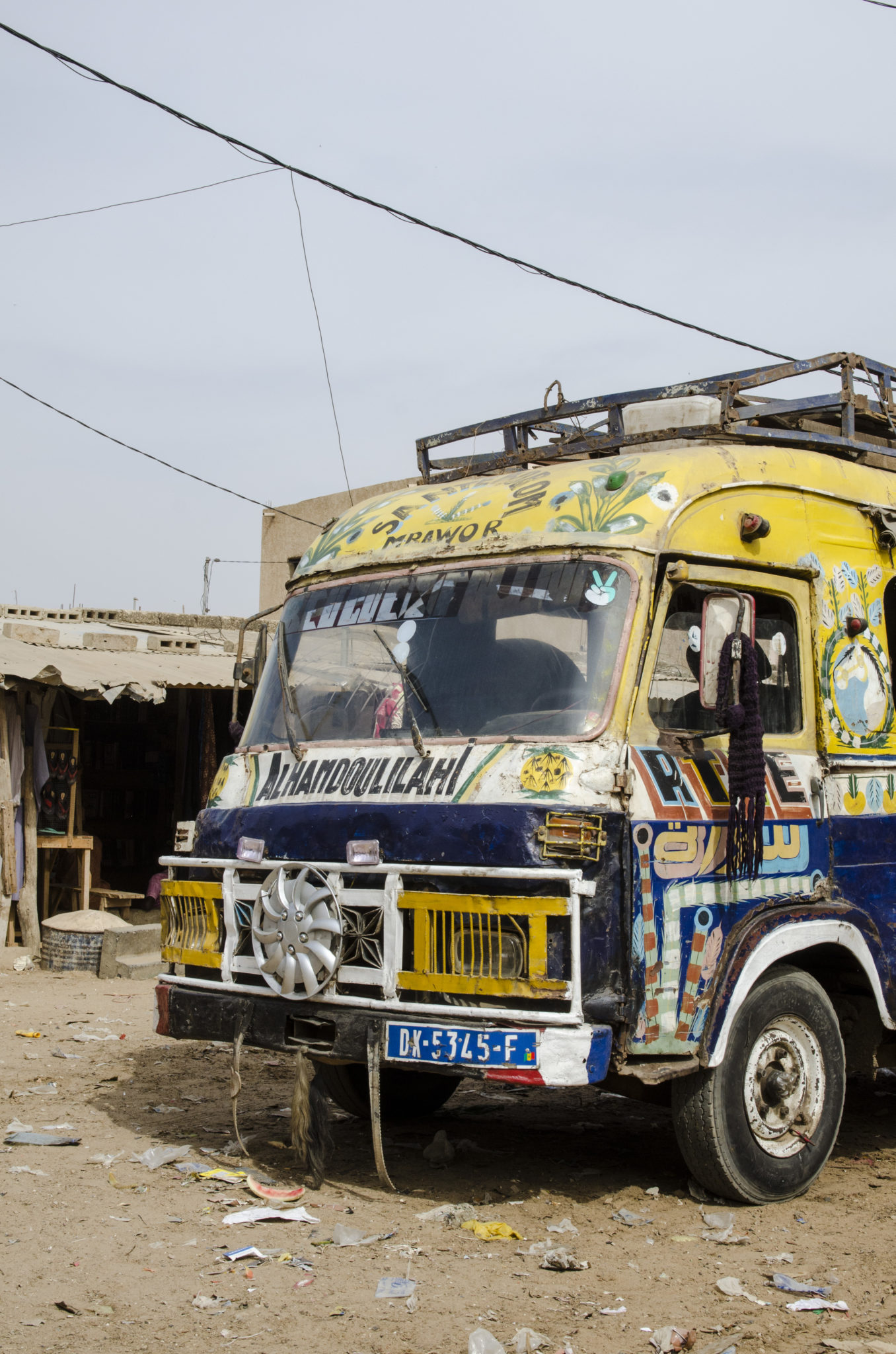
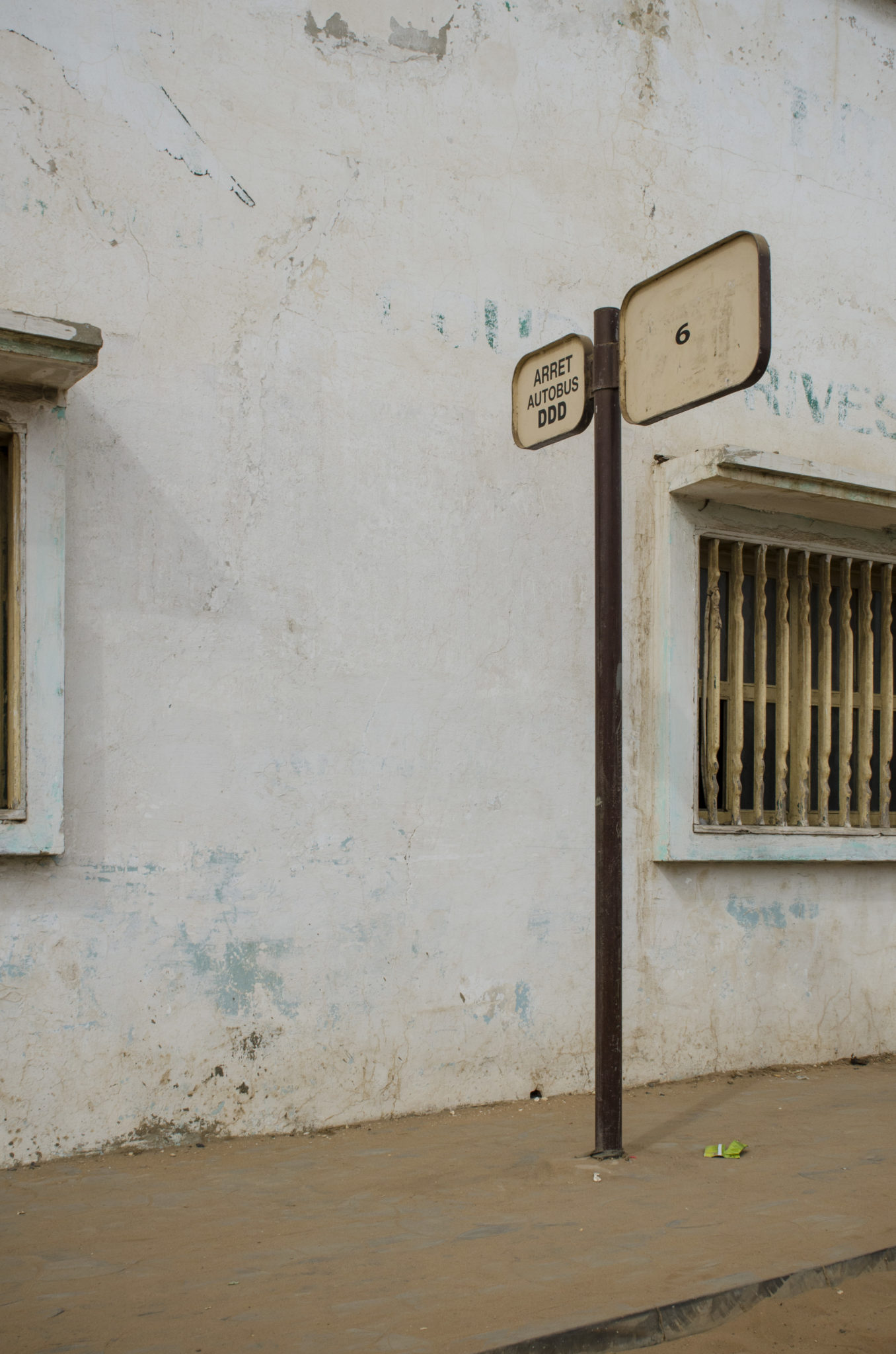
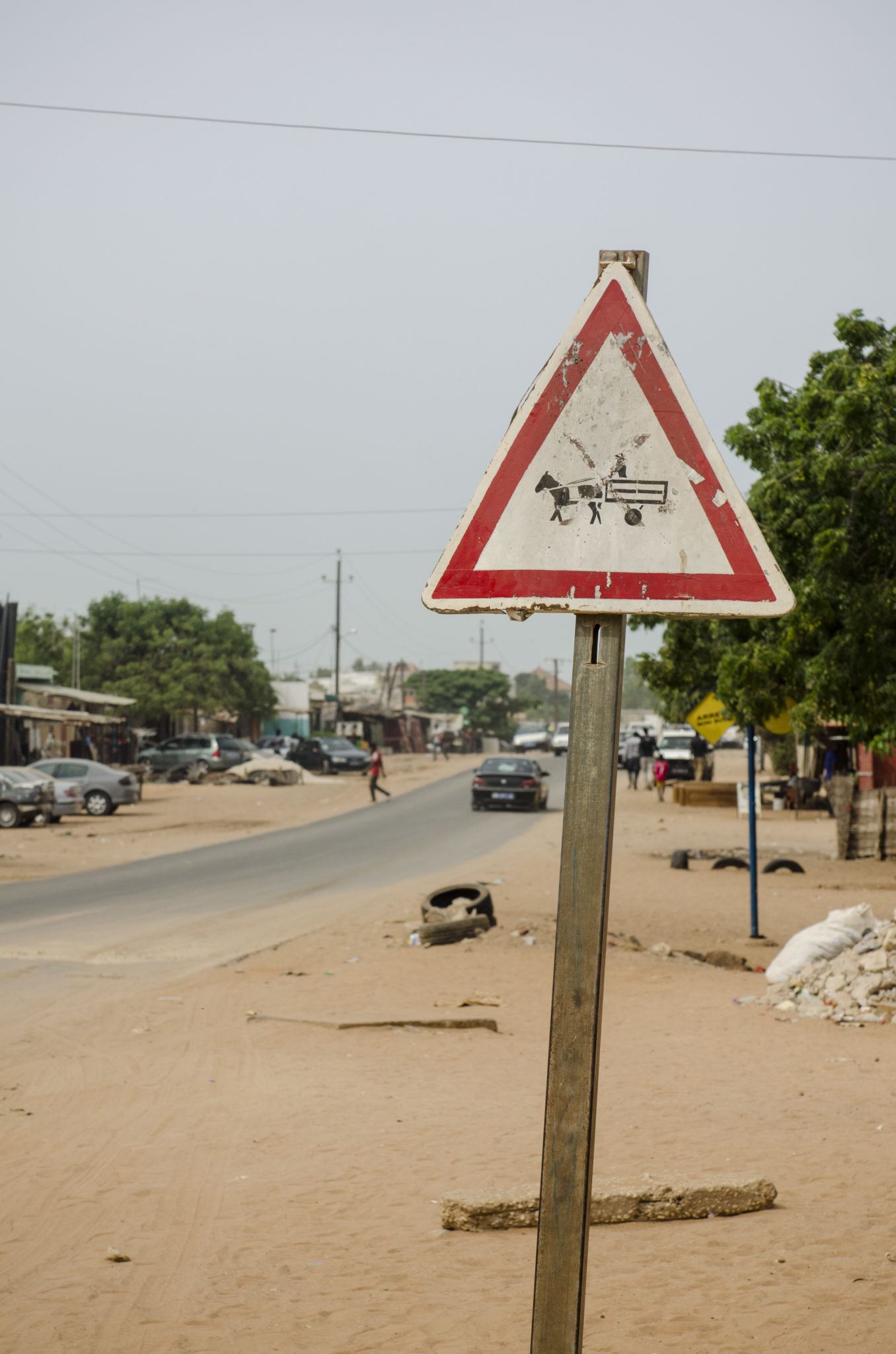
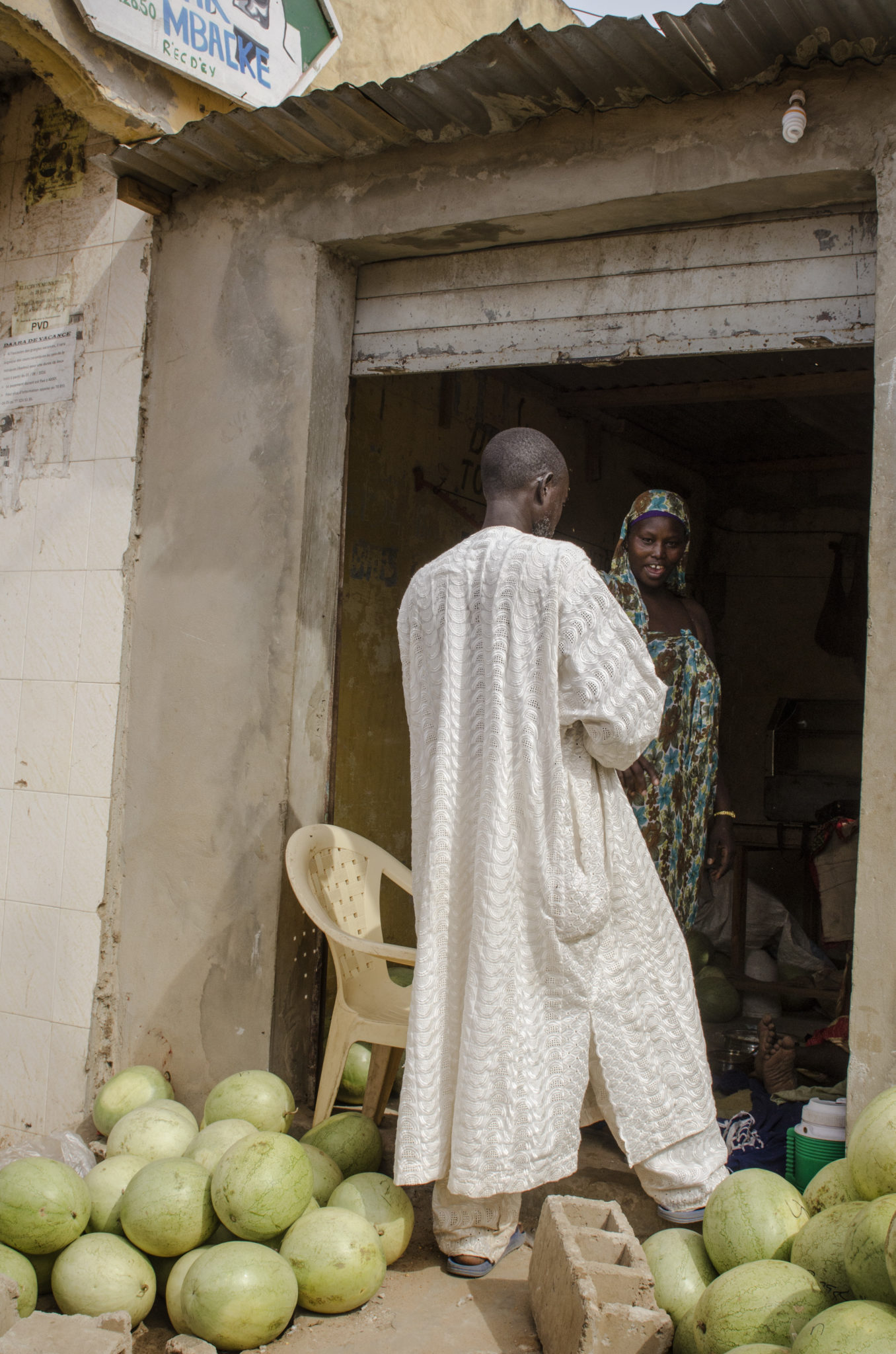
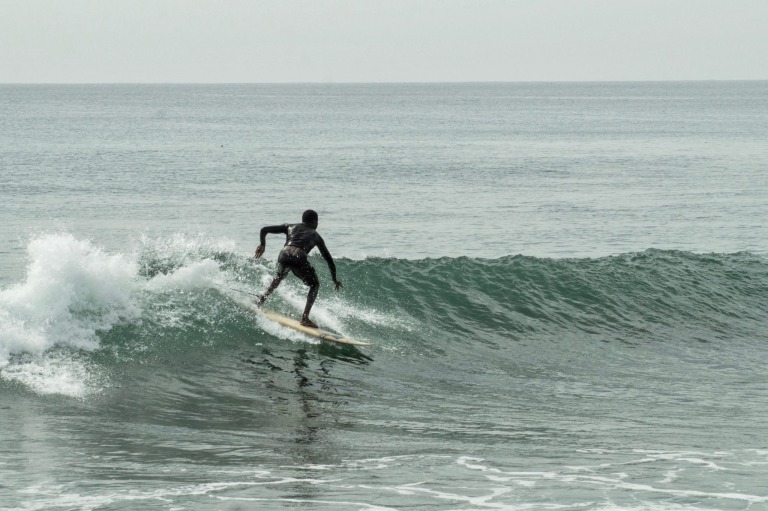
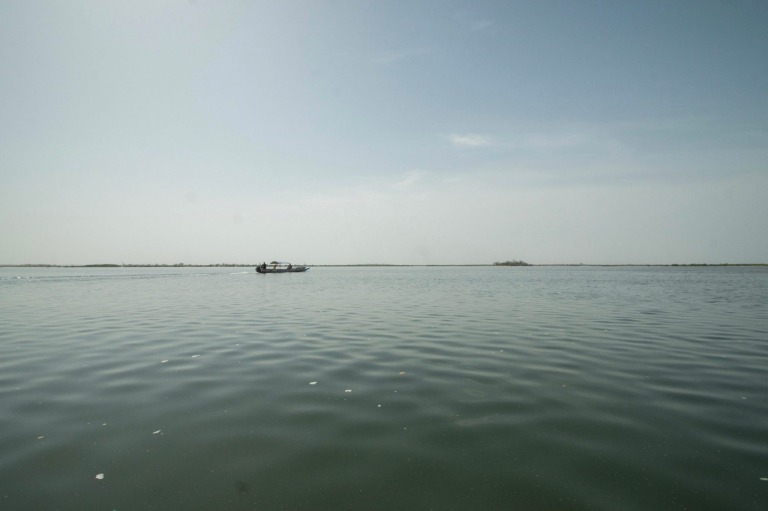
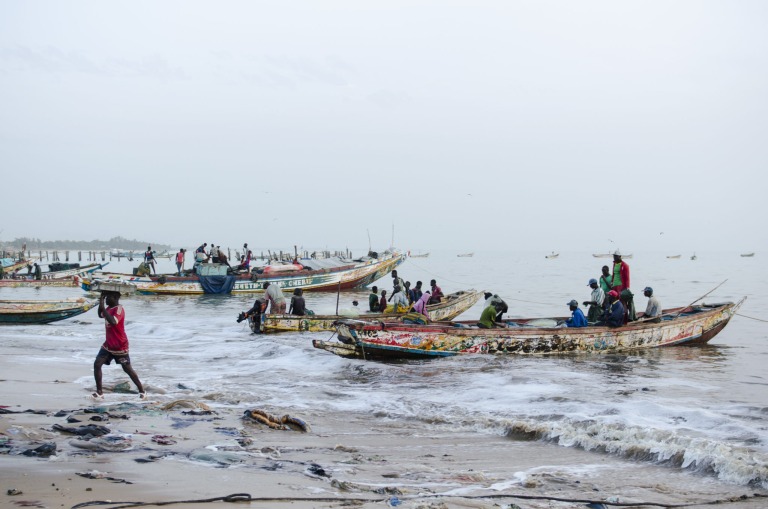
No comments yet.
Be the first to comment on this post!